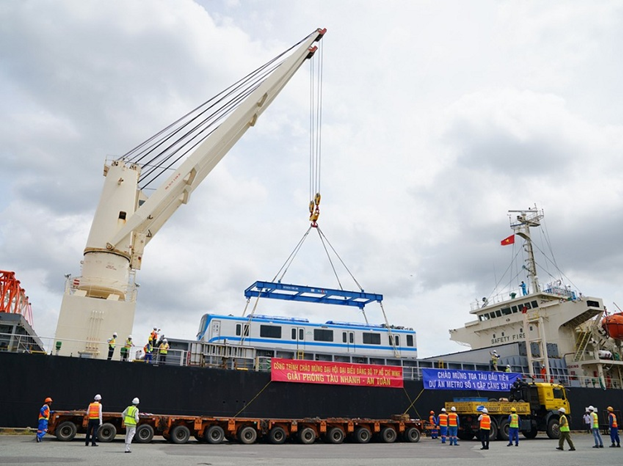 Economy
Economy

 |
People shop in a supermarket in Hà Nội. HSBC has raised its forecast for Việt Nam’s economic growth this year to 6.9 per cent. — VNS Photo Mai Hương
HÀ NỘI — HSBC has raised its forecast for Việt Nam’s economic growth this year to 6.9 per cent, from the previous prediction of 6.6 per cent, which is possibly the fastest pace in the region.
In the Việt Nam At A Glance report in July, HSBC Global Research noted that decreasing risks posed by the Omicron variant and eased restrictions have paved the way for Việt Nam to return to normality.
Thanks to widespread recovery, the country recorded an impressive GDP growth rate of 7.7 per cent in the second quarter compared to the same period last year. The service sector, which has suffered severe economic impacts, have bounced back strongly while manufacturing has continued growing and exports hit historic highs.
However, the growth forecast for 2023 was revised down to 6.3 per cent from 6.7 per cent due to growing risks, especially in the energy sector, according to the bank.
HSBC Global Research pointed out growing impacts of soaring energy prices. Escalating goods prices have led to a trade deficit in Q2 and may worsen the current account situation, which is already pessimistic. On the other hand, though household consumption has recovered steadily, people’s budgets may suffer from high oil prices, thus decelerating the recent recovery speed.
Việt Nam’s inflation is forecast to stand at about 3.5 per cent this year, but it may surpass the ceiling of 4 per cent between Q4 of 2022 and Q2 of 2023, requiring the State Bank of Vietnam to begin normalising monetary policy.
According to the report, Việt Nam has benefited from its economy reopening, and domestic demand has returned while external drivers remain favourable. However, it is necessary to stay alert to increasing growth risks, especially those posed by surging energy prices.
Meanwhile, the Executive Board of the International Monetary Fund (IMF) has highly valued Việt Nam’s policy support to cushion the impact of COVID-19 in tandem with successful maintenance of fiscal, external, and financial stability and an impressive vaccination rollout.
In a press release following a recent consultation with Việt Nam, the IMF Executive Board said a recovery is underway and high frequency indicators point to stronger momentum going into 2022, with rising retail sales, industrial production, and firm entry. Growth is expected to reach 6 per cent in 2022 as activity normalisation continues and the programme for recovery and development is implemented.
However, the recovery of the labour market is lagging as underemployment remains high. While inflation has recently picked up due to rising commodity prices and supply-chain disruptions, it remains well below the central bank’s inflation ceiling.
The Executive Board called for agile policy making, proactively adjusted to the pace of the recovery and evolution of risks.
They also underscored the need for fiscal policy to take the lead and be flexibly adjusted to evolving economic conditions. They welcomed the programme for recovery and development and emphasised the importance of targeting, spending efficiency, and steadfast implementation.
The IMF executive board stressed the need for monetary policy to be nimble and vigilant of inflationary risks. They also emphasised the importance of addressing problem loans, normalising regulatory forbearance in a timely fashion, and closely monitoring real estate sector risks.
They welcomed Việt Nam's recent steps towards greater exchange rate flexibility and monetary policy modernisation and encouraged continued efforts in this direction.
The board stressed the importance of structural reforms to improve the business environment, enhance productivity, and boost potential growth. They also praised Việt Nam’s ambitious environmental agenda and urged the translation of targets into concrete policy actions. — VNS




